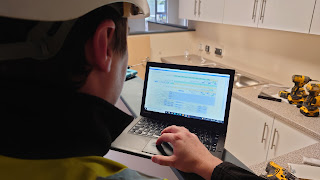Why Do I Need a Sound Test?
Building compliance can be frustrating, especially when you feel bombarded by red tape and regulations. The best thing you can do is understand why you need each compliance. Knowledge is power after all.
So, why do you need a sound test?
There's no getting out of it, you need to test sound on all new buildings and on building conversions created by a change of use. Sound tests must comply with Part E of the building regulations in England and Wales.
Your build will need soundproofing to keep the noise out. The sound test proves that your property actually meets the regulations set out in Part E, as stated above.
There are two different kinds of sound, tested by two different kinds of tests.
• Airborne noise
• Impact noise
Airborne noise: This is noise that is airborne, such as music, conversation, etc.
Impact noise: This noise is usually created against a surface, such as footsteps or banging.
Airborne noise is tested through walls and floors, and impact noise is tested through floors only.
One thing to note is that buildings are usually empty when tested. This makes the process much easier and affords a truer, better result. Any noise created within the building will be picked up by the meter and affect the final result of the sound test. Most builders will schedule the sound test just before a property is handed over to a client or when it's occupied. The building should be tested as soon as it's finished, since all the final finishes have been applied and the best chance of a successful result is possible. Once the property is lived in, the fabric of the building will change!
So, remember, to get the best results possible, you need to test before the property is occupied! You can also get help from an engineer at the design stage, way before any actual building work takes place. If we're talking about getting the best results possible, speak to an expert and work their suggestions into the design of your build. Don't forget, these people have years of experience and can tell you exactly what will work, and what won't.
We can all get bogged down by the red tape, and you wouldn't be the first to wonder why you have to pass so many regulations and gain so many certifications, just to build your own home. But, trust me when I say you need to understand why we have these regulations. The more you understand, the clearer things become.
These aren't here to trip us up, they're to ensure we build better and have homes that will last generations. We are, rightly, considering our planet much more and the impact we have. These regulations are designed to lower our carbon footprint, not just from the construction itself, but also the duration of the property.
With a healthier living environment, lower energy bills, and a reduced environmental impact, what's not to love.
Don't let these compliances bog you down, step up and build homes ready for the next generation.




No comments:
Post a Comment